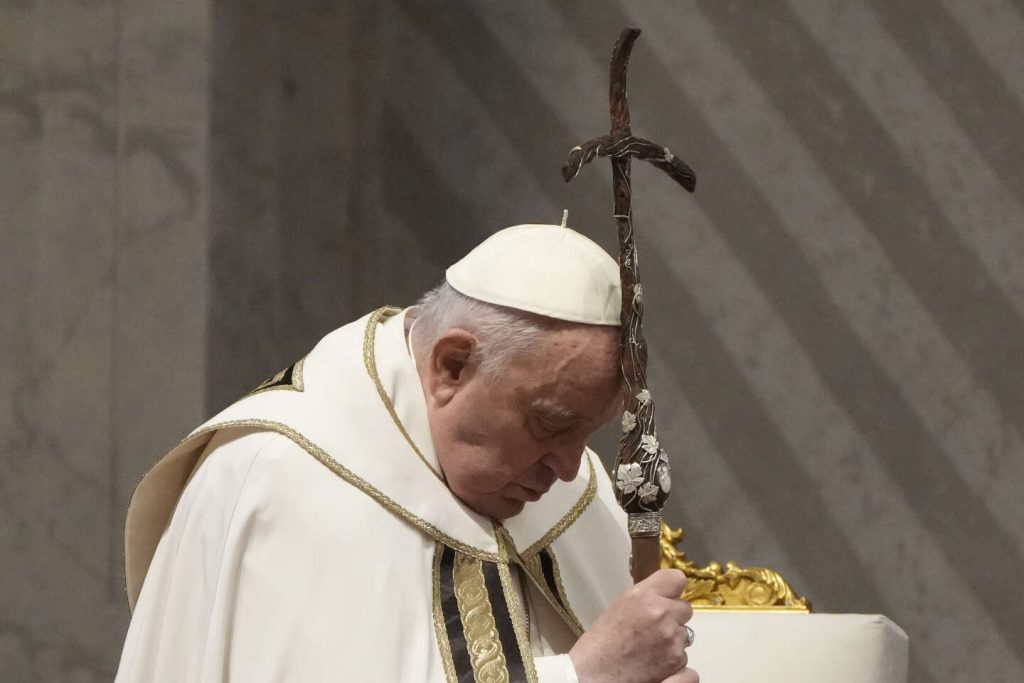Pope Francis celebrated the Chrism Mass in St. Peter’s Basilica in the Vatican on Thursday, March 28, 2024. The Vatican had been preparing a text for five years to update the teaching of the Catholic Church in light of evolving societal issues and moral questions facing the faithful. On Monday, April 8, Rome released the highly anticipated “Dignitas infinita” (“Infinite Dignity”), a document on human dignity that updates the Vatican’s stance on topics such as abortion, euthanasia, surrogacy, LGBTQ integration, war, the situation of migrants, and violence against women. This document was a response to a request from Pope Francis who explicitly called for attention to be focused on the serious violations of human dignity in our time.
The text was approved by the pope and drafted by the dicastery responsible for upholding doctrine in the Church, led by the Argentine cardinal Victor Manuel Fernandez, known for his close ties to Francis. This document comes just four months after Fernandez published “Fiducia supplicans” (“Supplicant Trust”), which allowed for the blessing of homosexual couples. The unexpected nature of this publication without explanation from Roman authorities caused confusion among Catholics worldwide, leading to resistance from some clergy, particularly in African countries, who openly refused to implement the document. This further exacerbated divisions within Catholicism between progressive and conservative faithful and bishops.
In a move to address the confusion caused by the previous document, Cardinal Fernandez and Pope Francis held a rare press conference to present and discuss “Dignitas infinita,” with the cardinal even fielding questions from journalists. The document explicitly condemns the practice of surrogacy as a violation of human dignity, stating that it reduces the immensely worthy child to a mere object. Surrogacy is prohibited in several European countries, including France, but permitted in countries like Denmark, the Netherlands, and certain American states. The Vatican’s stance on these issues seeks to uphold the fundamental dignity of every human being.
The document also addresses other pressing issues such as abortion, euthanasia, LGBTQ rights, war, migration, and violence against women, reflecting the pope’s call to address contemporary challenges to human dignity. The Vatican’s position on euthanasia remains firm, denouncing it as a violation of human dignity. The publication of “Dignitas infinita” marks a significant effort by the Catholic Church to engage with current moral and ethical dilemmas while upholding its teachings on the sanctity of human life. Pope Francis and Cardinal Fernandez’s approach to presenting and discussing the document demonstrates a willingness to address concerns and engage with the public and the media on these important issues.
Overall, “Dignitas infinita” represents a comprehensive update of the Catholic Church’s teachings on human dignity, reflecting a nuanced response to complex moral questions facing society today. By examining issues such as abortion, euthanasia, surrogacy, LGBTQ rights, war, migration, and violence against women, the document seeks to offer guidance and uphold the dignity of every human being. The intentional effort to communicate and clarify the Vatican’s positions on these issues through press conferences and public discussions indicates a desire for transparency and dialogue in addressing these challenging topics. Pope Francis’s leadership in advocating for human dignity in the face of contemporary challenges underscores his commitment to promoting a culture of respect and compassion within the Catholic Church and beyond.


